As many have written, 2023 was a great year for the games themselves and a pretty dire year for the industry and the people working in it. Let’s hope things improve in 2024.
I did a fair amount of game development in 2023, though it was less intensely focused than the previous year - I worked on Growl a fair amount, but also went back to add a bunch of features to Feud. That game is now, finally, feature-complete, with a full release in early 2024. You heard it here first, probably.
A few stray observations about my game-playing habits this year:
- I got a Steam Deck in March and it’s rapidly become my favourite way to play games. If a game in this list says PC, I probably played it on the Deck.
- I played very few iOS games this year - I really do think Apple Arcade has become enshittified, and I’m continuing to pay for it purely for Grindstone and Good Sudoku.
- I mostly used the Xbox for small indies on Game Pass, the PS5 for the bigger-budget stuff that my PC can’t really handle these days, and the Switch as a Zelda machine. My days of defaulting to buying indies on Switch so I could play them on the go have been ended by the Deck.
- My VR headset did not come out of the drawer for more than a couple of sessions the entire year.
I played 40 different games for the first time in 2023, which is a fair bit more than last year but still some way off my game-playing heyday. As ever, this list doesn’t include anything I bounced off quickly or played for less than an hour, unless it’s a shorter-form game where that was the intention. It also doesn’t include anything I started in previous years, though I’ve popped an honourable mention section at the end.
You can see my lists from previous years here:
Roadwarden (PC)
Roadwarden stresses me out with its tight time limit, but that’s very much the intended design. It pushes you to explore and experiment and take risks in a way I’m often averse to, which means you see much more of its wonderfully realised world. It’s a treat.
It Takes Two (Xbox)
I played this with my partner who is very much Not Into Games and it was a good time! It’s beginner-friendly enough to work even for someone who’s not terribly comfortable with controlling a character in 3D, and the collaborative puzzles mean it never feels like one player is carrying the other (except when that’s an actual mechanic).
Bonfire Peaks (PC)
This is an extremely clever puzzle game that I am extremely not clever enough for. I was able to make a bit more headway with it than I was Stephen’s Sausage Roll but this is one for the clever clogs. Clogses?
FAR: Changing Tides (Xbox)
I didn’t play the previous game in this series so I went in with very little idea what to expect. FAR is really lovely - it’s mechanically interesting throughout, with some lavish yet understated worldbuilding.
Somerville (Xbox)
I played two games this year from former Playdead developers. This is by some distance the less good one, but it’s still a good time and really visually striking. I didn’t get to the end of it but I do intend to go back (he says, knowing he probably never will).
Dead Space (PC)
I am a Big Scaredy Cat and had therefore avoided the Dead Space series for years, but when this remake came out at the start of this year I thought I’d be a Big Brave Boy and try it out. It turns out Dead Space isn’t that scary, or at least not the kind of horror that really gets to me, so I had a pretty good time with it. I did find the combat a bit wearing after a while but there’s much more interesting sci-fi storytelling at play here than I ever expected, and the almost-Metroidvania-y structure really lends itself to this setting (I’m told the original was much more linear so this seems like a tangible improvement).
Season: A Letter to the Future (PC)
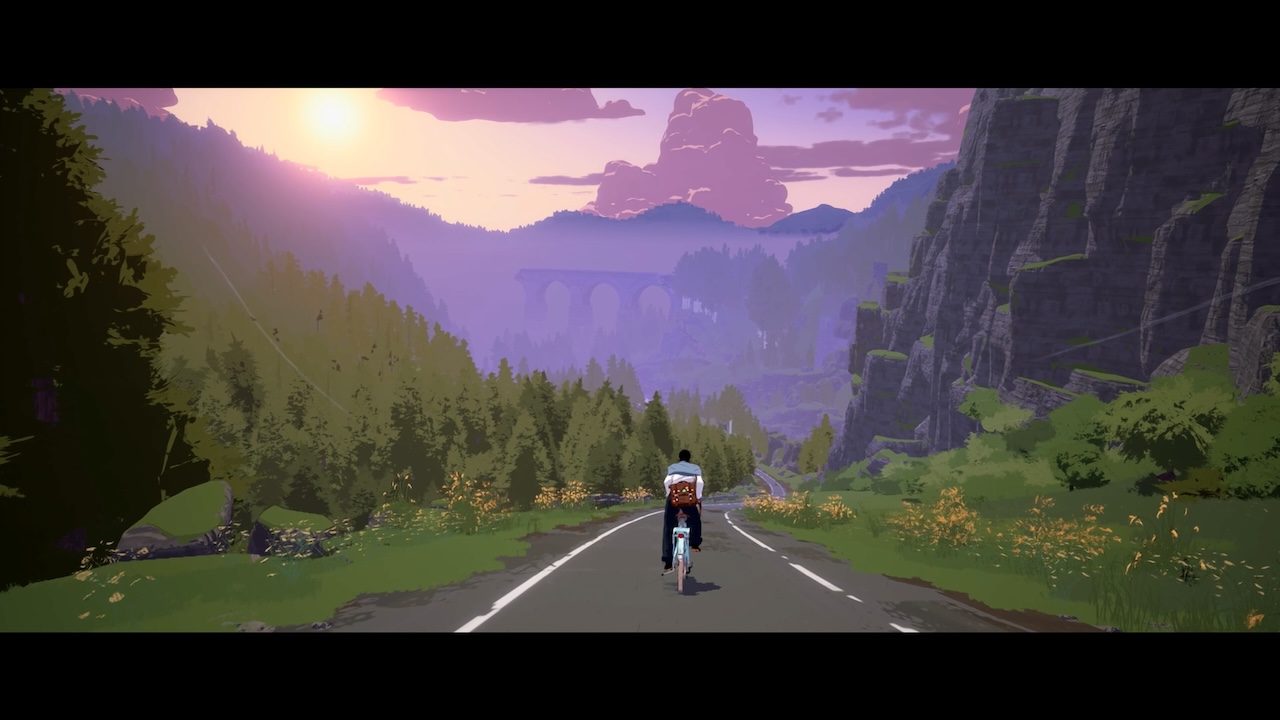
I think I’m the only person I know personally who liked this game, and I loved it. There’s something about the writing style that really works for me in a way I’d not really seen done in games before - it’s loose, dreamy, dare I say poetic - it’s a game written in the way I like to write. That aside, though, cycling through this gorgeous world is lovely enough to warrant giving it a try. I just wish they’d add an option to drop that ‘cinematic’ letterboxing.
Metroid Prime Remastered (Switch)
I played Metroid Prime on the original hardware not so long ago, and frankly this is a game that absolutely did not need a remaster, but being able to play one of the best games ever made on the plane with proper twin-stick controls is just dreamy.
Destiny 2: Lightfall (PC)
After a really excellent year Destiny’s momentum and player goodwill came crashing back to earth with the launch of the worst expansion since maybe The Dark Below. There were bits I liked, and Strand is genuinely great, but the whole thing comes apart at the very obvious seams due to some really terrible writing and plot structure.
I do think the seasonal content this year has been quite good but this will be a hard one for Bungie to recover from, especially in the wake of their recent mass layoff. A shame.
Desk Job (PC)
This is the free game you get to demo the Steam Deck hardware, but it’s well worth checking out - it’s really fun.
Resident Evil 2 (PC)
This was the first game where the Deck really wowed me - it runs perfectly. I’d not really played much Resident Evil ever, apart from 4 many years ago, and was really pleasantly surprised by how much it leans into some quite campy adventure game mechanics and aesthetics. It’s great.
Dread Delusion (PC)
“What if Morrowind but in the style of a psychedelic rock album cover” seems to be what Dread Delusion’s going for and from what I played it absolutely hits that mark. I actually dipped after realising the main story content isn’t all in the game yet but I’ll be back once it leaves Early Access for sure.
Cult of the Lamb (PC)
It’s kind of a mishmash of some slightly better games but the combination of the roguelite action levels and the colony management sim really does work. Lovely art, too.
Zelda: Tears of the Kingdom (Switch)
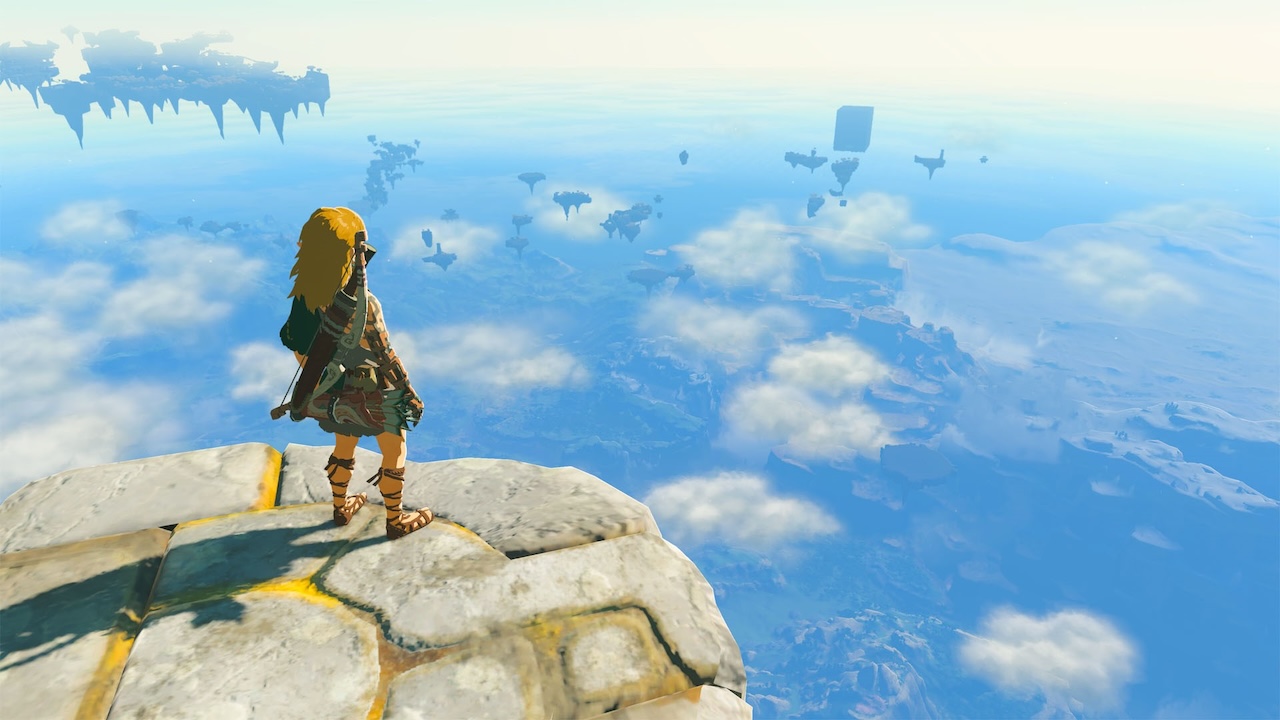
How do you make a sequel to the best game ever made? I think Nintendo could have decided to go bigger or to go deeper, and I’m so glad they mostly did the latter. Literally, in terms of the Depths and the verticality at play throughout the game, as well as mechanically; I can’t imagine playing the game without Ultrahand now, for all that when I saw the initial trailer I thought it was a gimmick.
I should have known better - in the hands of Nintendo’s finest minds, Tears of the Kingdom will probably keep me happily playing for the next six years. There’s a richness to it that makes re-exploring the same world almost as exciting as discovering it for the first time was.
Rytmos (iOS)
It’s not really a rhythm game, but it is a really excellent puzzle game in which rhythms emerge from finding solutions. I’ve also discovered a few previously-unknown genres of music and instruments. It’s great, get it on iOS, the PC version has wonky controls.
Humanity (PC)
At this point Enhance seems to be a studio that can do no wrong, and Humanity is as good as I’d hoped. It’s a gently forgiving puzzle game with a compelling aesthetic. It’s also the only thing that managed to get me to charge the VR headset this entire year - the VR mode is optional but it’s really quite nice, giving a sense of scale to the crowds that works really well.
Street Fighter 6 (PC)
Other than Super Smash Bros. in my uni days I am, and have always been, bad at fighting games. With SF6 launching I thought I’d make an effort to rectify that.
Did I become good at fighting games? No. But did I play online? Also no. I played the Yakuza-lite single-player mode and it’s great.
JETT: Given Time (PS5)
I really loved JETT a few years back, so I was quite excited about this free expansion. They seem to have gone for going harder on the systemic, ecology stuff that a lot of people felt the original didn’t make the most of. Sadly, it’s at the expense of the game’s character work and storytelling that this has been done, which is what so enamoured me at the time, so I didn’t enjoy this one quite as much.
Final Fantasy XVI (PS5)
I’ve not finished this yet but I’ve played quite a bit of it. I’m not sure how to feel quite yet. On the one hand it never quite feels good in the hands, the combat feels a little unresponsive and generally a bit clunky. The side quests are truly awful; so bad that the game actually has a different icon for the ones that matter. I don’t understand how a game that presumably started development in a post-Witcher 3 world could drop the ball so hard on this.
On the other hand, some of the writing is quite good, the world is interesting and I want to know more about it, and the voice acting is really genuinely excellent. The banter between characters has carried me through some of its dreariest sections.
South Scrimshaw, Part One (PC)
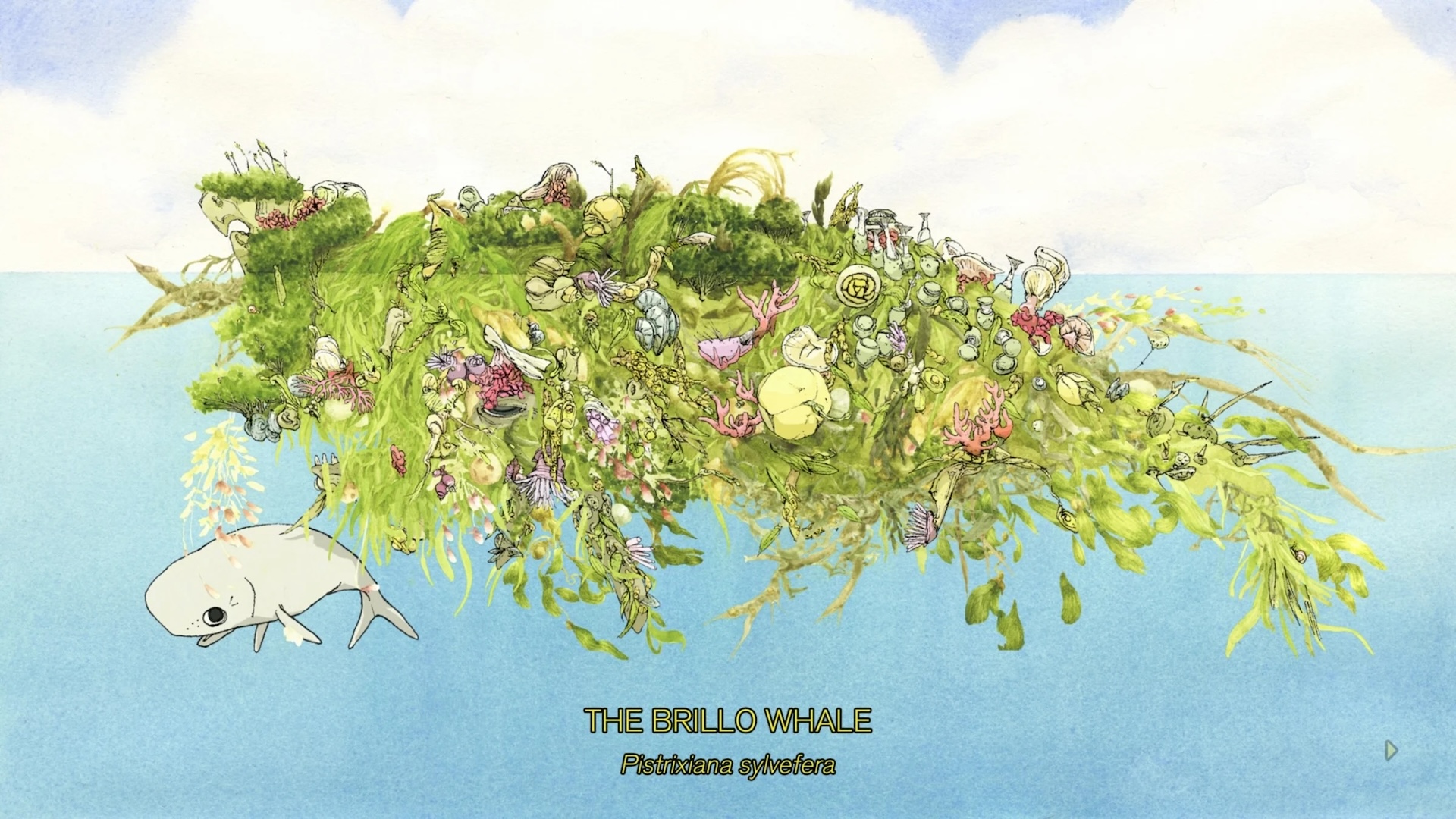
I played this free visual novel in one train journey back from Liverpool and I haven’t been able to stop thinking about it since. It’s a sort of sci-fi nature documentary about a species of whale on an alien planet. The attention to detail, the evocative art and the implications that the writing drops about the wider setting are just spectacular. If you liked Scavengers Reign you’d love this. My game of the year.
Eastward (PC)
The art style drew me in to this one and largely kept me there. It’s a lovely thing - a little inconsistent and derivative in places, but I’ve been really enjoying my fairly limited time with it.
Baldur’s Gate (PC)
No, not that one. In a brief fit of madness I took it upon myself to not start Baldur’s Gate 3 until I’d played the previous games in the series. This year, I’ve put about 30 hours into the first one.
Baldur’s Gate is a curious thing. In many ways the game is very hard to play - difficulty spikes are frequent and unpredictable, it is very heavily reliant on random numbers, and party members have a tendency to wander off and try to give bosses a hug.
However, even in this early title you can see the beginnings of what became the BioWare house style. It’s also a much funnier, sillier game than I had been led to believe. I’ll probably keep going with my ill-advised plan - while I can’t wait to get to 3 eventually, I’ve heard 2 is a banger.
The Outer Worlds (PC)
In a year where we had a ‘Fallout in space’ and it was a total flop, this one from a few years back holds up somewhat better.
I still bounced off it after the first act, though - the game plays a common but very annoying trick where it sets up a big moral decision, gives you some relatively clear clues as to the potential consequences of that decision, then throws a huge curveball at you after you’ve made it. “Siding with the oppressor is sometimes good, actually” is a take I saw Horizon Forbidden West make last year. I didn’t like it then and I don’t like it now. It’s not big and it’s not clever, stop it.
Viewfinder (PC)
I played this at WASD back in March after being enchanted by footage of its geometry-shifting mechanic and I’m happy to report that after launch it’s even better. The game is not content to simply rest on a killer hook, and plays with the central verb in some really fun ways.
Twilight Princess HD (Wii U)
I last played through Twilight Princess when I got it with my Wii, oh no, 17 years ago. In my memory it was one of my favourite modern Zeldas, and while I think time has not necessarily been kind to its reputation I do think the game largely holds up. Zant is still really, really creepy, and the dark tone actually continues to work rather than sliding into teenage edgelord nonsense the way I would have assumed.
System Shock (PC)
I’d never played the original and I’ve not got too far with this one yet, but can we just take a minute to talk about that art style? The low-res, pixelly texture work on top of modern 3D models is just a really sumptuous way to bring a game of this era forward without losing its feel. More of this!
Armored Core 6 (PC)
I’d never played a game in this series before and I’m very bad at it, but it really does feel incredible in the hands and there’s something about its tone I find extremely compelling. One to revisit.
Chants of Sennaar (PC)
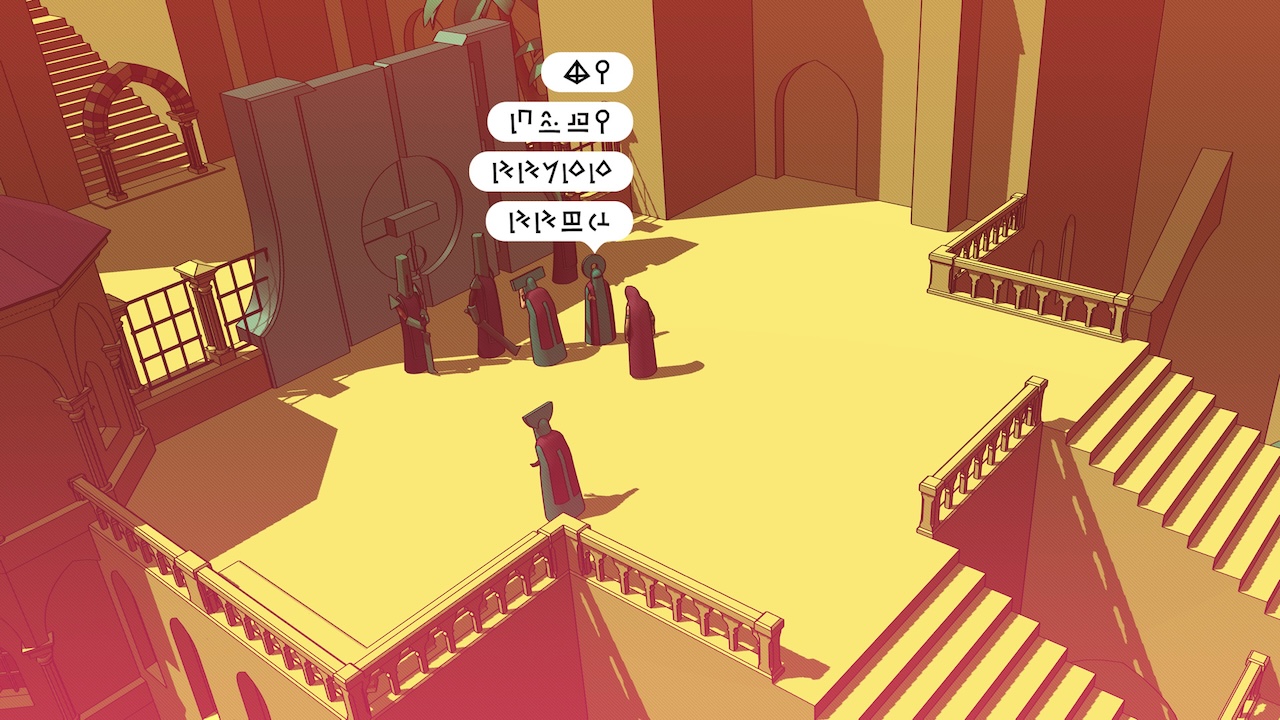
Heaven’s Vault is a favourite of mine so I was very excited about another translation game. Sennaar didn’t disappoint; it’s a beautifully contained puzzle game, showing remarkable restraint and tying everything up with a rather satisfying ending. I even 100%’d this one, something I increasingly rarely do these days.
COCOON (Xbox)

Sometimes I play a game and wish I’d made it, sometimes I play a game and can’t imagine how anyone could have made it. COCOON is both of these things. It’s simple yet intricate, immediately understandable yet consistently delightful, and delivers one of the most creative mechanics I’ve yet seen. I played this the weekend I was home for my Granny’s funeral and it somehow did a lot to soothe me. Play it.
Planet of Lana (Xbox)
It was sold to me as a “Ghibli-esque platformer” and while I didn’t get far enough to see that trademark darkness start to creep through it is a really beautiful game, that does just enough within the confines of what I feel is a rather tired genre to keep things interesting. That said, I don’t see myself going back to finish this one.
Unravel Two (Xbox)
I played the original game a few years back as a single-player experience and was distinctly underwhelmed. The addition of a second player is crucial; the mechanic where one person holds the yarn and the other swings becomes absolutely essential to most of the game’s best puzzles. It’s ace. I don’t understand how they missed it first time around but I’m very glad they were given another go.
Jusant (Xbox)
I assumed I’d spend my Christmas break finishing this one but I actually got sucked back into NieR Replicant so didn’t. Sorry, Jusant.
Anyway: it’s brilliant. I’m not much of a climber myself but even with my limited bouldering experience the mechanics of this game do a whole lot to capture the feel of a steady climb. That would almost be enough, but it adds in some wonderful visual and worldbuilding work. A treat. I love how Don’t Nod have become a studio that eschews “house style” to just make whatever the hell they want.
Alan Wake 2 (PS5)
Alan Wake 2 is in so many ways a Joel Game, so I struggle to articulate exactly why I haven’t really been enjoying my time with it. It just feels a bit clunky and slow and keeps making me do rubbish combat. I think I’ll stick with it as I want to see where the story goes but I confess I’m disappointed by this one and feel like I’m in the minority.
The Talos Principle (PC)
This one feels like a puzzle game built out of the spare parts of a shooter, and that’s because it is. Somehow zooming around a puzzle game like it’s a Quake level actually really works, too.
A Highland Song (PC)
I was fortunate enough to playtest this one from Inkle, one of my very favourite studios (I’m in the credits, mum!) back at the start of this year. I knew I’d love it so I didn’t let myself play again until it was properly released, and I’m glad I waited, it’s wonderful. My very favourite bits are when Moira is running downhill and you have to hit the button in time with some lively trad. No other game has come as close to capturing the feeling of going for a big walk in the mountains.
Subpar Pool (iOS)
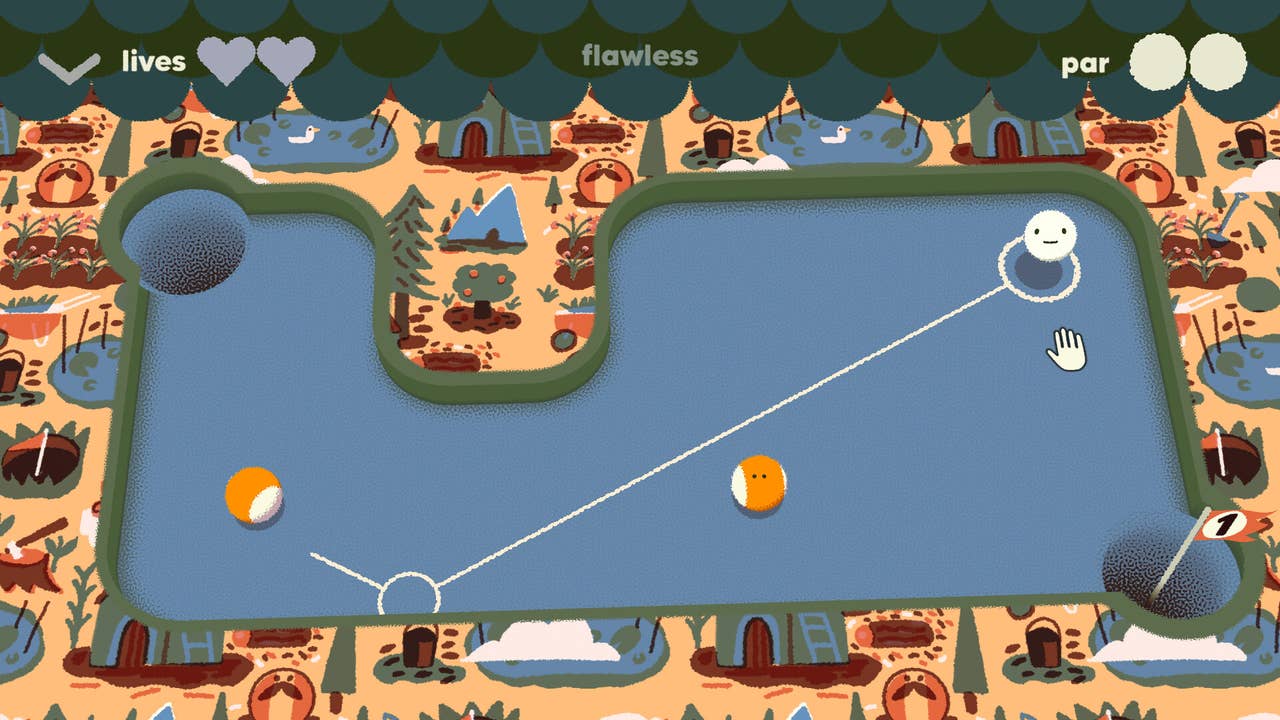
I play this on iPad which is just the perfect platform for this kind of game. It takes a very simple mechanic - pool, with the rough edges sanded off - and then adds increasingly creative twists. My favourite so far is the modifier where holes move every time you pot something - it makes planning a shot much harder but if you actually manage to pull off a double-pot it feels incredible.
Dave the Diver (PC)
I’m not getting into the Game Awards debate over whether this counts as indie because I think the Game Awards are a waste of everyone’s time, but it is extremely good. The writing is occasionally slightly wonky but somehow this only adds to its charm. My understanding is that I’ve barely scratched the surface of everything this game becomes. Runs great on the Deck, too.
Wildermyth (PC)
I’d been meaning to play Wildermyth for ages but had always been a bit nervous of it due to the nature of procedurally-generated storytelling; I just hadn’t really seen it done well. Past tense. Wildermyth is very special. I’ve only done the first bit of it but I’m already very attached to these characters.
Before The Green Moon (PC)
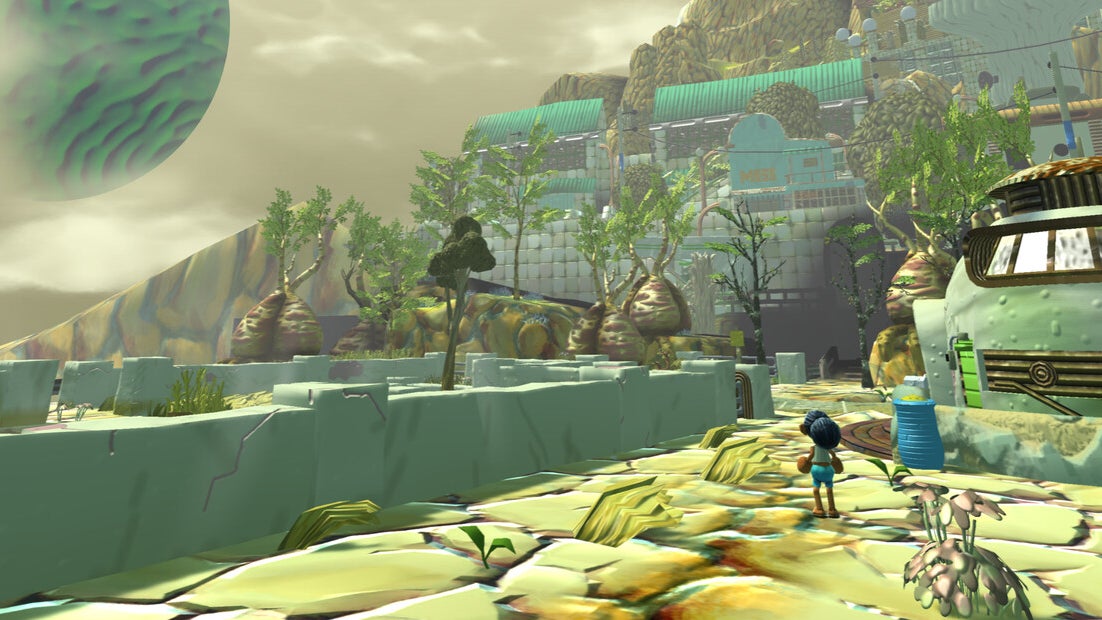
I bought this one knowing nothing about it, and not even as a fan of the genre, purely because of how much I loved this studio’s previous game, Wide Ocean Big Jacket. It’s a very different thing, but shares that game’s understated yet extremely sharp character writing and sense of place. I can’t comment on whether this will measure up to the expectations of someone expecting a Harvest Moon or Stardew Valley - I suspect it won’t come close - but as an eight-hour story about community, found family and work it’s really effective and, to me, quite affecting.
Super Mario Wonder (Switch)
I never really got on with the New Super Mario Bros. series - something about the controls just didn’t really work for me - but with this one they’ve absolutely nailed analog stick controls for a 2D platformer. It feels incredible, it’s joyous, it’s colourful, it made me grin like a fool. It’s also, in some places, really hard. All stripes of Mario players should be happy with this one, though if that’s you I imagine you’ve played it already.
Honourable mentions
I technically started Signalis last year and didn’t get too far wth it, but this year I decided it was time to give it the attention it deserves, and I’m very glad I did. My recommendation would be to finish it, form your own opinions on what the hell happens in this game, then go and watch Sam Greer’s really excellent video.
I got back into Divinity Original Sin 2 again. Still haven’t finished it, still having a blast.
I still can’t beat Hades. I’m bad at games.
Have a lovely 2024. Maybe next year’s post will include Baldur’s Gate 3 (but I wouldn’t hold my breath).

